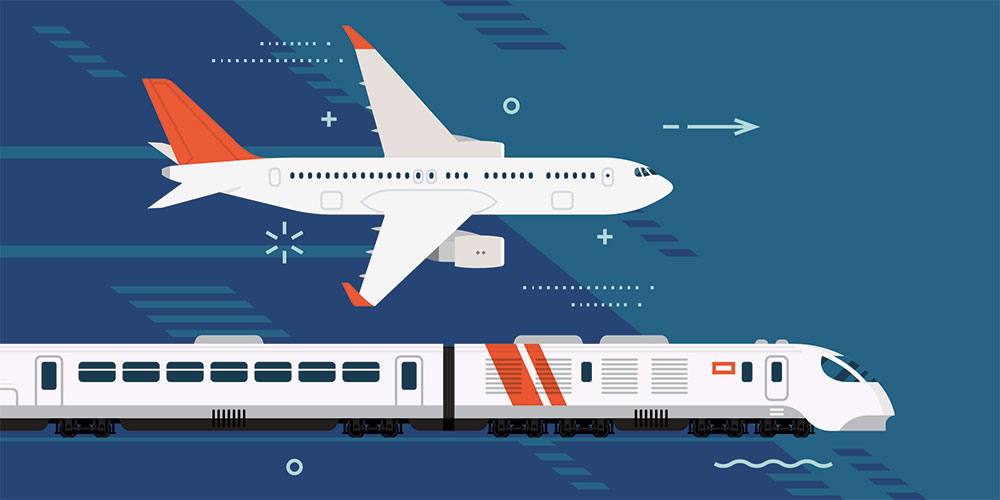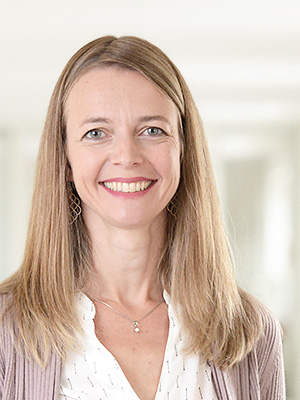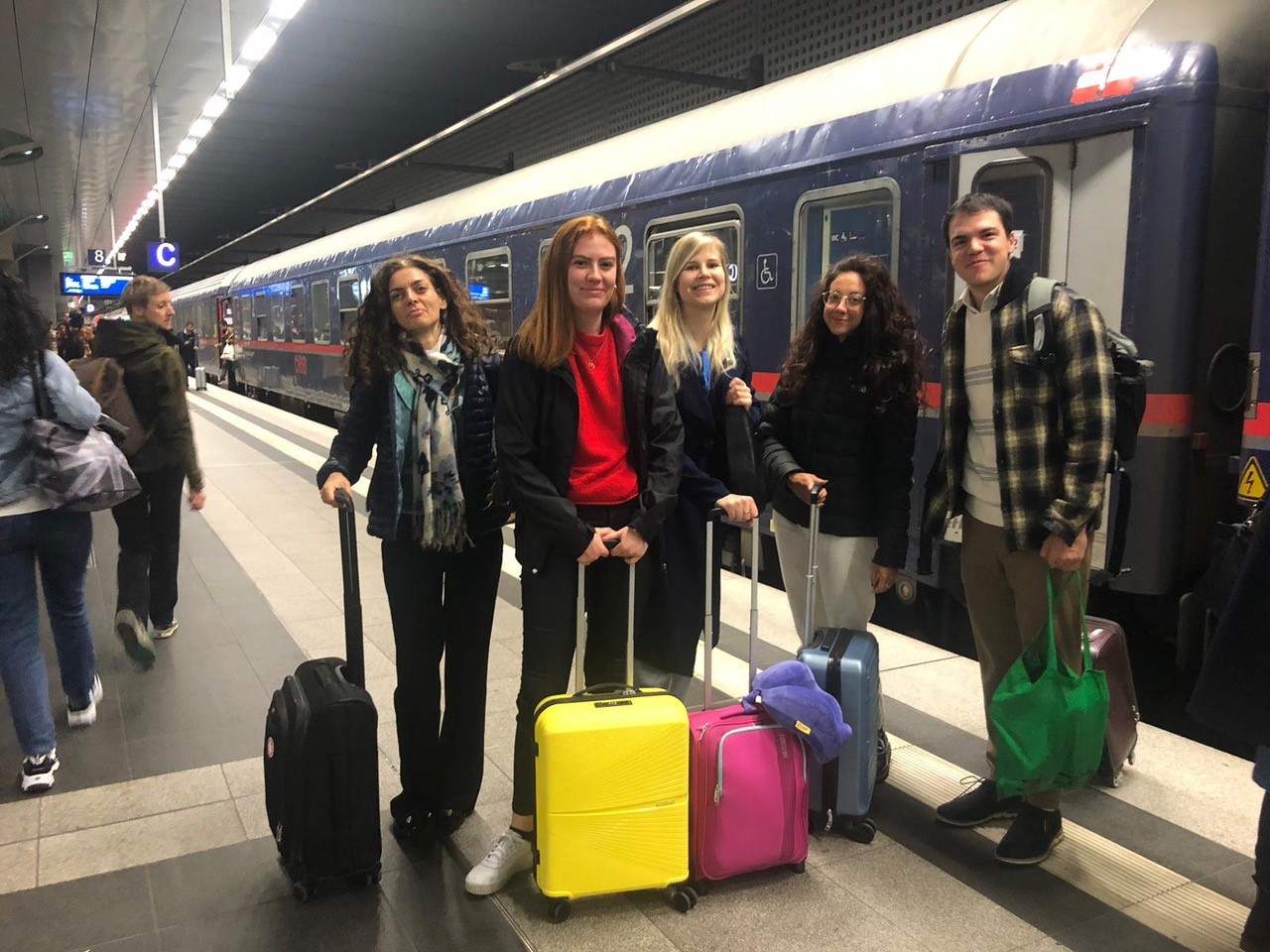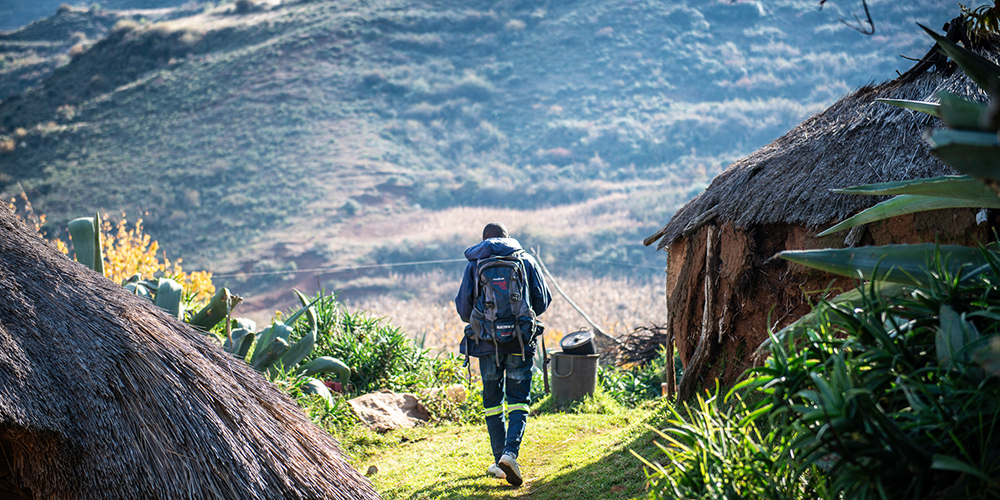Mobility - less for more

Business Travel is an integral part of academic operations to enable field research, conferences and international cooperation. Air travel in particular is therefore responsible for a large proportion of the University of Basel's greenhouse gas emissions. Hence, reducing flight emissions can have a significant leverage effect on improving the university's carbon footprint.
With its 2024-2030 climate strategy, the University of Basel is pursuing the goal of permanently reducing its greenhouse gas emissions - without compromising the quality of research and teaching. Climate-friendly business travel makes an important contribution to this, particularly with regard to air travel, which causes a large proportion of emissions.
The “less for more” project supports all units of the university in adopting a more sustainable approach to business travel. It relies on decentralized measures that suit the respective specialist cultures and working methods - and provides data, decision-making aids and practical tools for this purpose.
University of Basel greenhouse gas emissions due to air travel, 2017–2023
The flight data for 2017 to 2024 was collected retroactively based on accounting documents. Overview of key findings:
Selected figures
In 2024 long-haul flights account for about 40% of air travel, but are responsible for almost 85% of CO2 emissions. Reasons: greater distances, higher altitudes and a greater fuel load.
Aim: reduce emissions due to air travel by 30%
The University aims to reduce greenhouse gas emissions from air travel by 30% compared to the 2017 - 2019 baseline. The reduction in emissions should be based on an effective reduction in air travel, i.e. not including CO2 offsetting. This target was missed for the first time in 2024.
Since 2021, however, all faculties, departments and institutes have implemented their own set of measures - tailored to their respective specialist cultures. This has shown that ambitious and consistently implemented measures do have an impact: In some faculties and departments, air travel emissions were reduced by up to 80% in 2024 compared to the reference period 2017-2019.
A research group at the Department of Biomedicine shows how sustainable travel can be implemented in everyday research. Read more in the sustainability report.
Reduction measures
Reducing aviation-related greenhouse gas emissions is a task for the entire university. In order to take into account the different requirements of the disciplines in research and teaching, a decentralised approach was chosen for the development of reduction measures: In the spring of 2021, the faculties, departments and university institutes developed their own measures, taking into account the University of Basel's reduction path. They were supported by the Sustainability Office. A selection of the measures can be found in the download box.
Expenses and travel regulation
Central reduction measures introduced for the entire university complement the implementation concept. One example is the University of Basel's new expense regulations, which came into force in January 2025: they contain more binding requirements for business travel in line with the climate strategy. For instance, air travel must be avoided for destinations that can be reached by train in less than six hours.
Networks
The University of Basel is part of the Swiss Network for Sustainable Academic Travel. Representatives of the largest Swiss universities and academic institutions exchange ideas in this network with the common goal of reducing emissions from business travel.
Further Links
- Academic Air Travel Reductions and Offsetting Projects
- Lee et al. (2020). "The contribution of global aviation to anthropogenic climate forcing for 2000 to 2018"
- Wynes et al. (2019). "Academic air travel has a limited influence on professional success"
- Policy Note from the Junge Akademie on flight reduction (PDF, 378 KB)
A short summary of the key facts on air travel.
Is flying really necessary and what are the alternatives? The Decision Tree Mobility will help you with this decision and resolve other questions.
This list covers destinations that can be reached in 4, 6, 8 hours or 1.000 km by train from Basel.
Travelling to Milano, Paris & Co: By train or by plane? Comparison of travel times and emissions of CO₂. The map was developed by ETH Zurich in cooperation with routerank.com
Use this calculator to estimate the carbon footprint of your flight.
This website allows you to compare the emissions of CO2 and airborne pollutants for journeys by plane, car and train.
With the railtour.ch booking tool you can easily book train and hotel in combination for the desired destination.
This website (simpletrain.ch) helps planning and purchasing train tickets for trips from Switzerland to (nearly) everywhere in Europe. (German only)
Interactive map with European night train connections.
Find out information about train travel times within Europe.
For group tickets, please contact the SBB Group Travel Competence Center:
- Phone: 051 222 33 63
- E-Mail: gruppen.international@sbb.ch
Connecting popular Erasmus+ destinations through green travel.
FAQ
-
Contact information
Dr. Carina Weingaertner
Project Manager Sustainability




